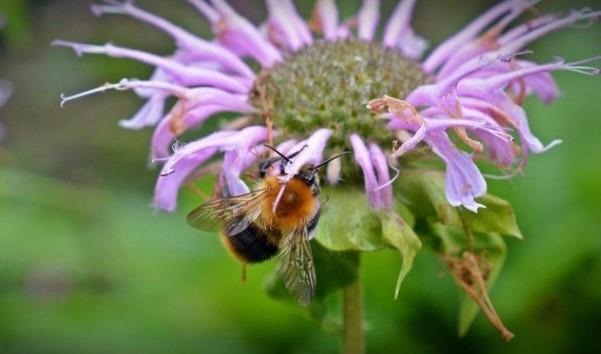By Laura Kenny
A farm with showy, neat landscaping is desirable to landowners and attractive to clients. Environmentally conscious farm owners may want to use native plants to support pollinators and local ecosystems and to avoid spreading invasive species. However, many horse farm owners are understandably nervous about their landscaping plants being toxic if a horse gets loose and grazes on the garden. This article lists some horse-safe, native plants that can be planted in gardens and around buildings on horse farms.
Benefits of Native Plants
In the United States, a native plant is a plant that grew in a specific area before European settlers arrived. Pennsylvania has approximately 2,100 native plant species and 1,300 non-native plant species. Landscaping with native plants is preferable to using non-native plants for numerous reasons. They are adapted to local environmental conditions, meaning they grow easily with little maintenance required after establishment. A major benefit is that they provide food for the local ecosystem and support native pollinators such as bees and butterflies.

Planning Your Planting
When you are selecting a spot for your native garden, take note of the area’s growing conditions. Determine how much sun exposure the area gets. Too much or too little sun can hinder certain plants’ growth. Pay attention to how well it drains; does it have standing water after a rain event? If so, it might be better suited to build a rain garden . Keep gardens out of reach of horses; while the plants on this list are not known to be toxic, your plants will not last long if they get eaten! They are not intended to be grazed by horses.
When looking for native plant seeds or seedlings, make sure to purchase them from a nursery or local plant sale. Never remove native plants from the wild! The PA Department of Conservation & Natural Resources (DCNR) has a list of native plant and seed sources in PA. Many local online groups host plant swaps and can be a good source of native plants.
Native Plants & Horses
The plants listed below were identified from the Pennsylvania DCNR publication Landscaping with Native Plants and are not known to be toxic to horses. However, this only means that there are no recorded cases of equine toxicity from these plants. To err on the side of caution, some plants were excluded from this list because they contain known toxic compounds, despite not being reported as toxic to horses. Additionally, be aware that any time a horse consumes a large quantity of a new plant, it has the potential to cause digestive upset (such as diarrhea or colic), so it is generally best practice to keep horses away from your garden.
When selecting plants, pay close attention to the scientific name, as the common name may be used for more than one species. For example, horse-safe Eastern hemlock (Tsuga canadensis) is not related to water hemlock (Cicuta maculata), which is extremely toxic. For a list of common plants that are toxic to horses, read Plants Toxic to Horses .
Refer to Landscaping with Native Plants for more details on each plant, including bloom color and period, light and moisture preference, size, and more notes to help you identify and select native plants.
Trees
| Common Name | Scientific Name |
|---|
River birch | Betula nigra |
Shagbark hickory | Carya ovata |
Red bud | Cercis canadensis |
Flowering dogwood | Cornus florida |
Tulip tree | Liriodendron tulipfera |
Blackgum | Nyssa sylvatica |
Eastern white pine | Pinus strobus |
Eastern hemlock | Tsuga canadensis |
Shrubs
| Common Name | Scientific Name |
|---|
Smooth alder | Alnus serrulata |
New Jersey tea | Ceanothus americanus |
Summersweet | Clethra alnifolia |
Pagoda dogwood | Cornus alternifolia |
Red-osier dogwood | Cornus sericea |
American hazelnut | Corylus americana |
Spicebush | Lindera benzoin |
Ninebark | Physocarpus opulifolius |
Blueberries | Vaccinium species |
Arrow-wood viburnum | Viburnum dentatum |
Perennials
| Common Name | Scientific Name |
|---|
Big bluestem | Andropogon gerardi |
Gaura | Gaura biennis |
Oxeye sunflower | Heliopsis helianthoides |
Blazing-star | Liatris spicata |
Bee-balm | Monarda didyma |
Wild bergamot | Monarda fistulosa |
Sundrops | Oenothera perennis |
Beard-tongue | Penstemon digitalis |
Wild blue phlox | Phlox divaricata |
Jacob’s Ladder | Polemonium reptans |
Christmas fern | Polystichum achrostichoides |
Mountain mints | Pycnanthemum species |
Little bluestem | Schizachyrium scoparium |
Indiangrass | Sorghastrum nutans |
New England aster | Symphyotrichum novae-angliae |
Foamflower | Tiarella cordifolia |
New York ironweed | Vernonia noveboracensis |
Conclusion
Well-planned gardens can elevate a property's aesthetic, but it is important to choose plants carefully. Not only should they be adapted to the site conditions, but they should also be non-toxic to horses in case a horse gets loose from its field and grazes the plants. Using native plants reduces the maintenance required and helps the local ecosystem and pollinators. Overall, native plants will benefit everyone on the farm.
Source : psu.edu